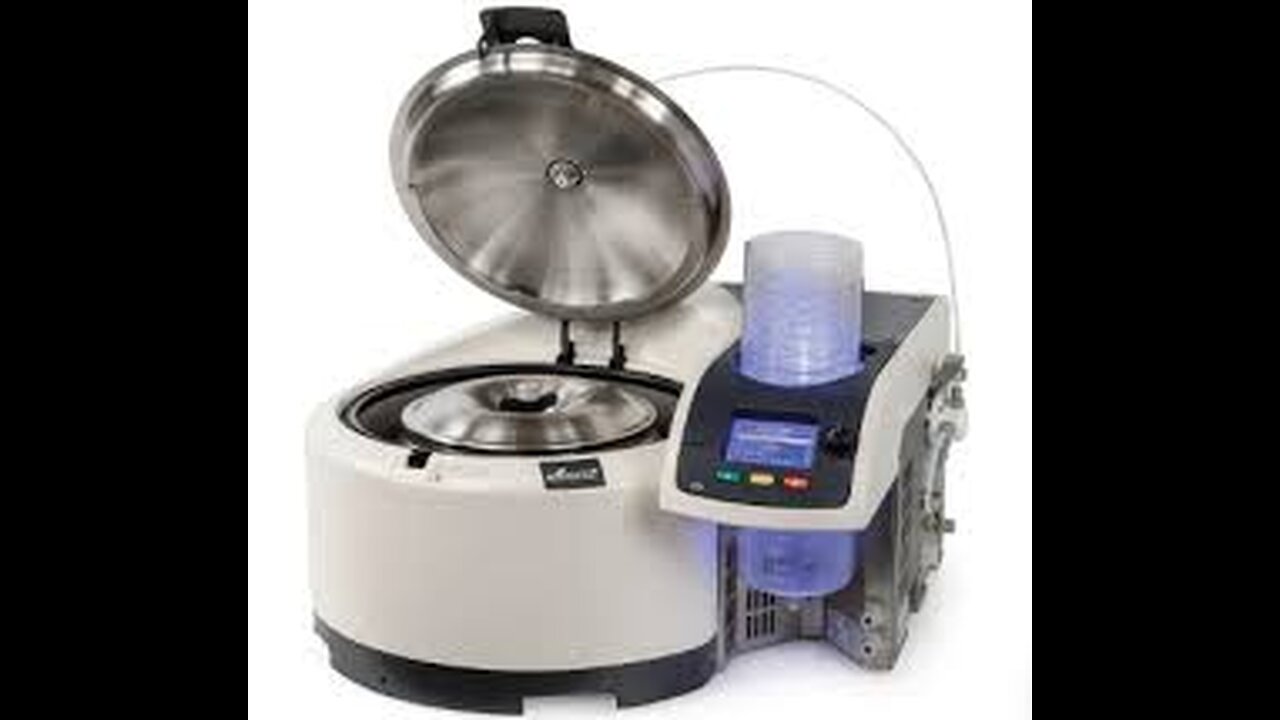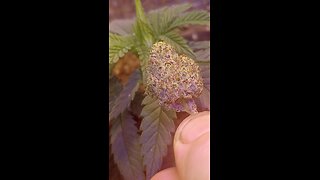Premium Only Content

Is Sugared Shatter really Degradation of the Concentrate? Let's chat over a dab
Links to reviews & Other Content all Free
Articles, Reviews, news, & More on Cannabis both Recreational & Medicinal
- Patreon.com/appalachianterpology
Shorter articles & Shorts
- thcnterpz.locals.com
Social Media Links & Hemp Derived Terpene Infused Bath Bomb Ordering incredible topical therapeutic properties 👇
Linktr.ee/terpene.king
Cannabis concentrate production isn't something that's been being accomplished cleanly and at the levels done today, ever. We figured this stuff out in the backyards of peoples homes starting with simpler forms of illicitly produced Hash oil like butane HashOil. BHO is One of the most dangerous forms to produce due to the volatility of butane. Indoors, people.mistamkimgly make it and thunk that butane, a gas, will float. But butane is heavier than air and sinks in stale air. When that layer reaches the outlet, it ignitez the butane then the air.
So what is the "sugaring or buddering" up of a concentrate bad? Is it the cannabis breaking down? Or is it bad storage? Moisture? It's actually a combination of these factors or one of them or all of them, were not certain. We understand what is happening but the exact reason why and especially making it preventable really isn't possible. Sugaring is when your live solid easily breakable shatter slab turns into a sticky mess in the paraphrase paper.
While shatter does smell, sugaring or buddering causes an intensification of the potency of the terpenes. The terp sauce in the case of this 2 gram slab actually started to seperate from the tricomes. There was actually sap on the paraphane paper. The whole process is the trichomes attempting to return to their natural state. This can be brought on by a variety of factors according to the research I've done and what I know about shatter and concentrate processing. THC is a very complex and touchy girl to work with once she's extracted away from her home base in the plant.
Even after the super critical co2 extraction the THCa is stable, as it is able to attach to the solvent ajd remain stable there. This has to do with the atomic affinity of substances and gets bery scientifcally complex. The filtration wipe known as decaboxylation.....this is the key. By the key I mean that it is the unstable nature of THC when not attached to the solvent or exsisiting as THCa OR in its natural state that's seems relative to the tendency for shatter to sugar up, aka nucleation back to the tricomes more natural state.
Depending in the type of extraction process used to create the oil being winterized, depends on whether winterization is a necessary step or whether the lipids should be removed. sometimes it isnt dinancially sensible to do so,, sometimes it cant be avoided to produce better quality aestehtically pleasing concentrate, pull more beyyer terpenes, and other factors. The whole process of winterization requires that heat be used at specific temperature, between 80°F & 146°F to precipitate the fats and lipids from the material. Then clold is used to solidify and seperate thise fats to be removed from the product.
The "wipe" is a process that is quite complex but im going to explain it because im proud of myself for having discerned what is happening with the wipe. The wipe is the process by which cannabis concentrate is debarboxylozed. But Why THCa is so sensitive, why when turning to THC it wants to convert back to THCa or attach to some other molecule to stabilize or when agitated the shatter homogenized with its consoturlent cannabinoids begind the return to the batural tricones form. I won't get into the atomic reason for this but it has to do with balance at the atomic level.
This is all relative to the sugaring up Of cannabis as this is the lipids not totally homogenizing with cannabinoids like they intially did due to a multitude of reasons.Just as the THCa tries to revert back to its stable state as THC during filtration seems to me quite similar to homogenized shatter reverting back to its natural form, tricome formation.
Superchilling cannabis concentrate extracted via supercritical co2 extraction for example, is necessary to get the lipids to appropriately seperate. Lipids coagulae at lower temperature in an ethanol solvent, as at higher temperatures the lipids are dissolved in the concentrate. The wipe takes oil that has been partially processed through supercritical extraction, and it runs through a condensing heating and supercooling process, and some other processes I don't quite understand totally but is the decarboxylation process.
For the full article see patreon 👇
https://www.patreon.com/posts/83798189
-
 1:04
1:04
tErPwErKz710
1 year agoRolling Funny Smelling Tobacco The OG Way - How To Roll The OG Way - Pop Top Cigarettes 🚭
781 -
 LIVE
LIVE
vivafrei
9 hours agoEp. 291: More Epstein Documents! Stacey Plaskett SCANDAL! Butler Cover-Up, Tucker Smear & MORE!
14,077 watching -
 LIVE
LIVE
SpartakusLIVE
2 hours agoWZ Solos ONLY - Everything Else: BANNED || NEW Schedule Experiment
877 watching -
 LIVE
LIVE
xLuigi34x
1 hour ago100 Follower Special! Going to 100% The DKC Trilogy on stream!
289 watching -
 LIVE
LIVE
LumpyPotatoX2
2 hours agoHostile Takeover | High-Stakes PvP - #RumbleGaming
194 watching -
 DVR
DVR
LadyDesireeMusic
2 hours ago $11.78 earnedCooking Stream | Make Ladies Great Again
36.1K5 -
 2:03:42
2:03:42
The Connect: With Johnny Mitchell
1 day ago $26.12 earnedAmerican Vigilante Reveals How He Went To WAR Against The WORST Cartels In Mexico
110K13 -
 LIVE
LIVE
a12cat34dog
3 hours agoONE OF THE BEST REMAKES EVER :: Resident Evil 4 (2023) :: I GOT 100% ON EVERYTHING {18+}
125 watching -
 19:31
19:31
Liberty Hangout
3 days agoAnti-Trumpers Repeat CNN Talking Points
201K247 -
 19:53
19:53
Clintonjaws
5 hours ago $6.44 earnedThey Lied About Charlie Kirk - MAJOR UPDATE
19.5K18